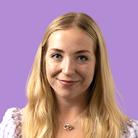#AccessMeans - our event for Global Accessibility Awareness Day 2021
2 minute read
Global Accessibility Awareness Day (GAAD) was created to further the discussion about digital access and inclusion across technology, digital tools, assets, and software worldwide.
Global Accessibility Awareness Day (GAAD)
Last week we celebrated Global Accessibility Awareness Day with a chorus of voices from the Nexer team, and some special guests. Accessibility underpins everything we do at Nexer, from auditing digital products and services, writing accessibility statements, delivering training and most recently working with Umbraco to launch an accessibility training course.
This year, to celebrate the 10th Global Accessibility Awareness Day we really wanted to put the focus on creating accessible content and talk about our personal experiences navigating a range of digital touchpoints. Every day at Nexer Digital we dedicate our time and passion to a human-centred approach in everything we do. In an effort to bring accessibility to life, we wanted to highlight some of our own team’s experiences and tips, as well as various advocates in the field, to help elevate the message of inclusion. Whether you are new to accessibility, already working in the field, or you just want to know more, we created this event to cater for anyone and everyone, just how we would on any other day.
Our dedicated content team Justin, Will and Lisa highlighted ways in which we can engage with audiences more inclusively, by looking at alt-text techniques and using Plain English in practice. Ever wondered how to describe images to those who cannot visually access them? Justin even explained how poetry can help. In an ever-growing diverse society, we have to ensure our written content is understandable. Gone are the days we write to impress, let’s encourage writing to be understood. Will talked about benefits and tips on how to write in Plain English in practice.
Lisa shared her lived experience of living with Dyslexia, and how this acts as a superpower but also a curse in some situations. Lisa shared a real-life account of how good content can be designed to enhance user experiences and evoke feelings of belonging. It’s worth recognising this was Lisa’s second time ever, talking about her personal experiences as a dyslexic person. During her presentation, she used her experiences as a poet to artistically express and convey her experiences with dyslexia.
We heard from Holly Scott-Gardner who has been blind from birth and relies on a screen reader to access her degree at Leeds University, her work as a Usability assessor as well as day-to-day life. Holly shared her thoughts on how inaccessible spaces, including digital environments, can easily exclude people with specific access requirements. Holly expressed that even websites that meet WCAG guidelines, in theory, may not meet the needs of people with access needs, for instance when she is shopping for makeup or clothes.
Our very own Molly Watt, an accessibility and UX specialist, produced our #AccessMeans film, which features enlightening and inspiring stories from a wide range of people. The film plays an essential role in opening the conversation and discussion around the importance of designing inclusive and accessible products. We hope that this film will continue to encourage others to share their own stories and experiences using the hashtag #AccessMeans.
Finally, our panel shared personal and moving accounts of their experiences, which prompted candid and open discussion from attendees. Taking the time to listen and understand perspectives and experiences is the first step to building services and products that better serve a wide range of users. Accessible content benefits everyone, not just people who may have access needs.
The full event recording is available below for anyone who'd like to watch and share the message.
If you'd like a copy of the slides we covered at the event, they can be found on our Slideshare page

